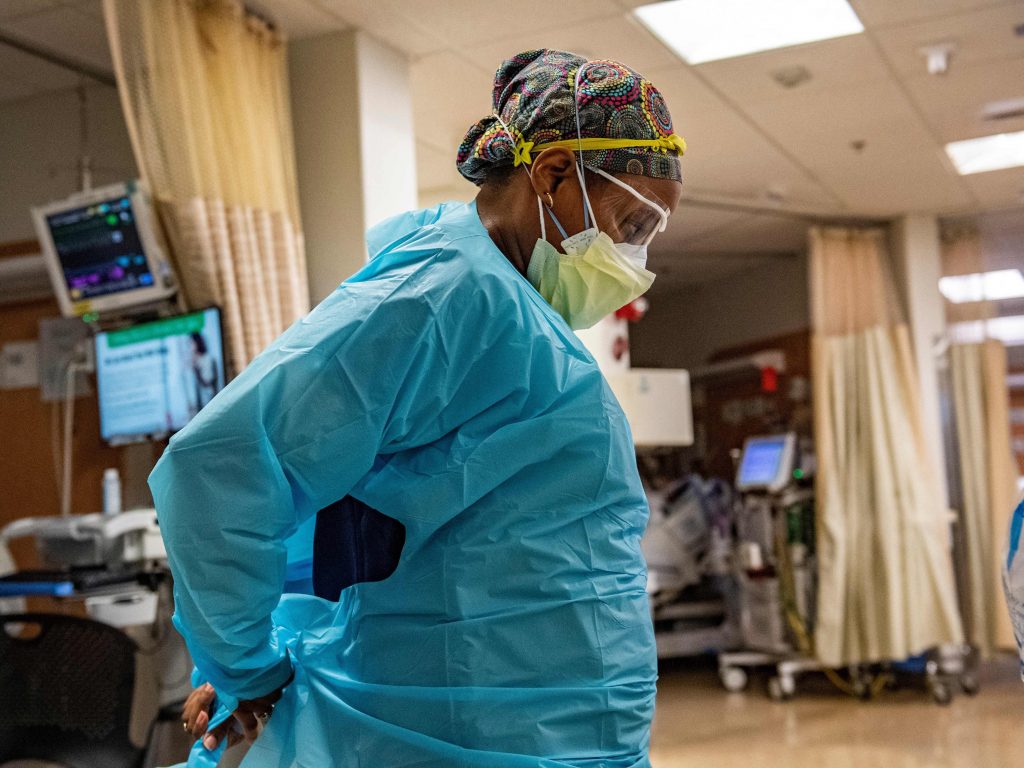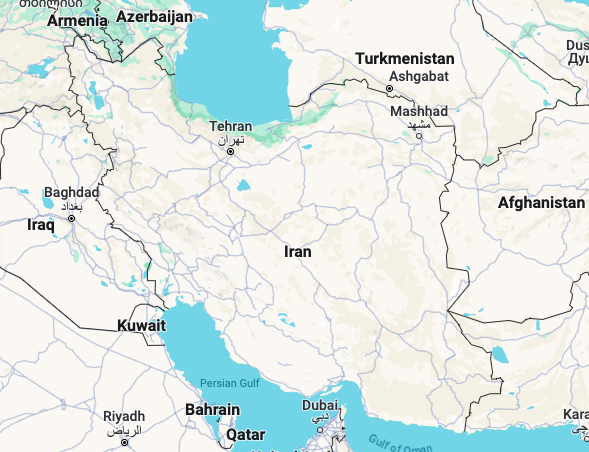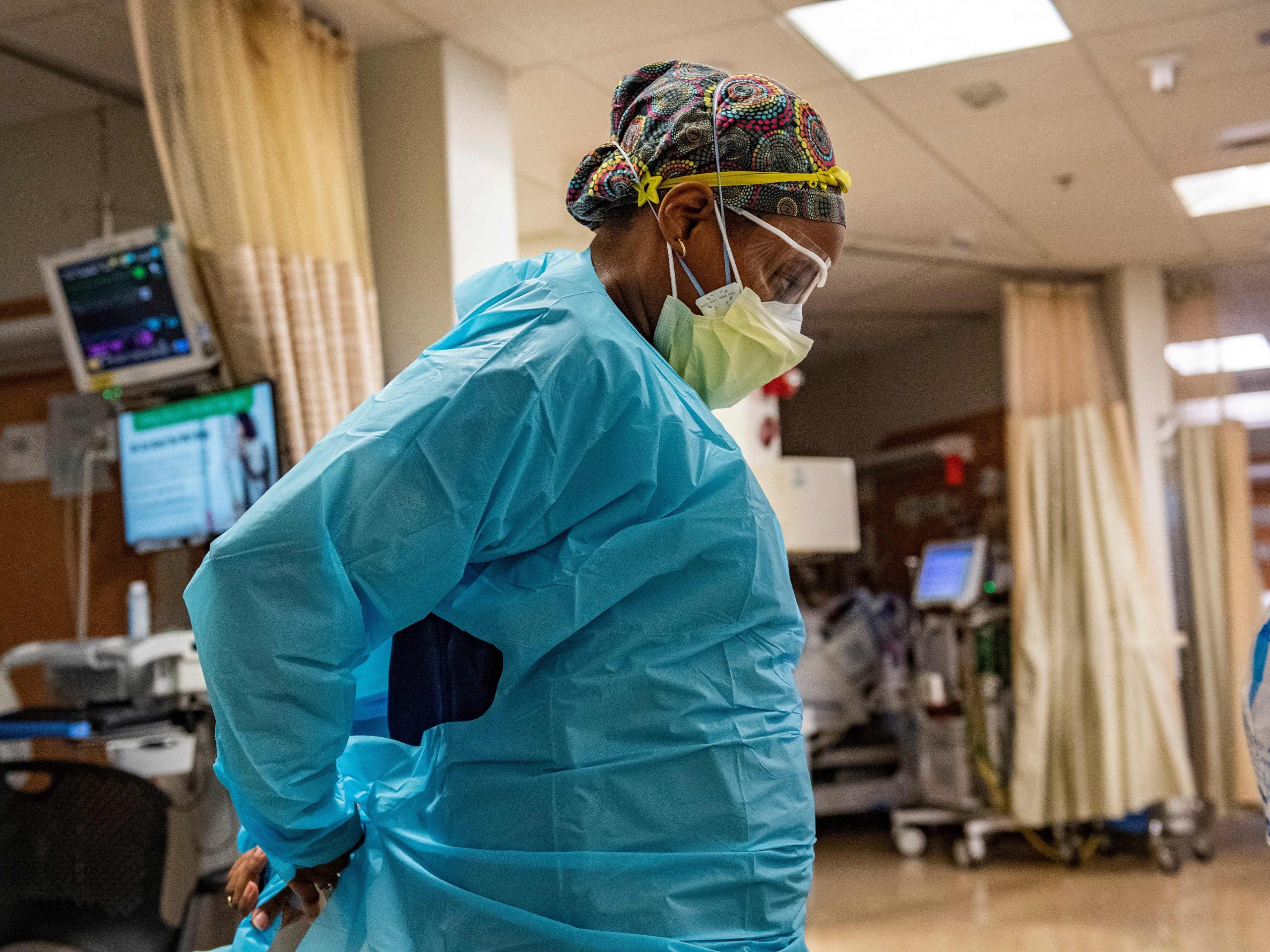
- A handful of nurses are using TikTok to call out hospitals pressuring them to come to work with COVID-19.
- Four nurses across the US told Insider they had been told to come into work while sick or risk losing pay.
- Some nurses said they're close to quitting after nearly two years of long hours and heightened verbal and physical abuse.
What was once an ill-advised practice is now becoming a common request across US hospitals: Healthcare workers are being asked to treat patients while sick with COVID-19.
In a TikTok video now viewed more than 7.2 million times, April Lynn, an ICU nurse, claimed her hospital cleared her to return to work five days after testing positive for COVID-19, despite still having a cough and severe fatigue. (Lynn did not respond to Insider's request for comment.)
Four other nurses told Insider that, in the last week or so, they've been instructed to come into work with symptomatic COVID-19, or risk losing pay or receiving a formal warning. The nurses said hospital administrators are pointing to new federal emergency guidance that allows healthcare workers to shorten isolation periods as a way to mitigate widespread staffing shortages.
"After almost two years of having to deal with this and having such a high stress job, this is kind of like a kick in the face," labor and delivery nurse Rachel Pokriva, who tested positive for COVID-19 on Monday, told Insider. Pokriva is due to return to work on Thursday at St. Joseph East in Lexington, Kentucky, despite still suffering intense nausea and fatigue.
According to the Centers for Disease Control and Prevention's emergency guidance, released on December 23, healthcare workers can return to work five to seven days after testing positive for COVID-19. Isolation time can also be cut shorter than seven days with a negative test "if there are staffing shortages," the CDC stated.
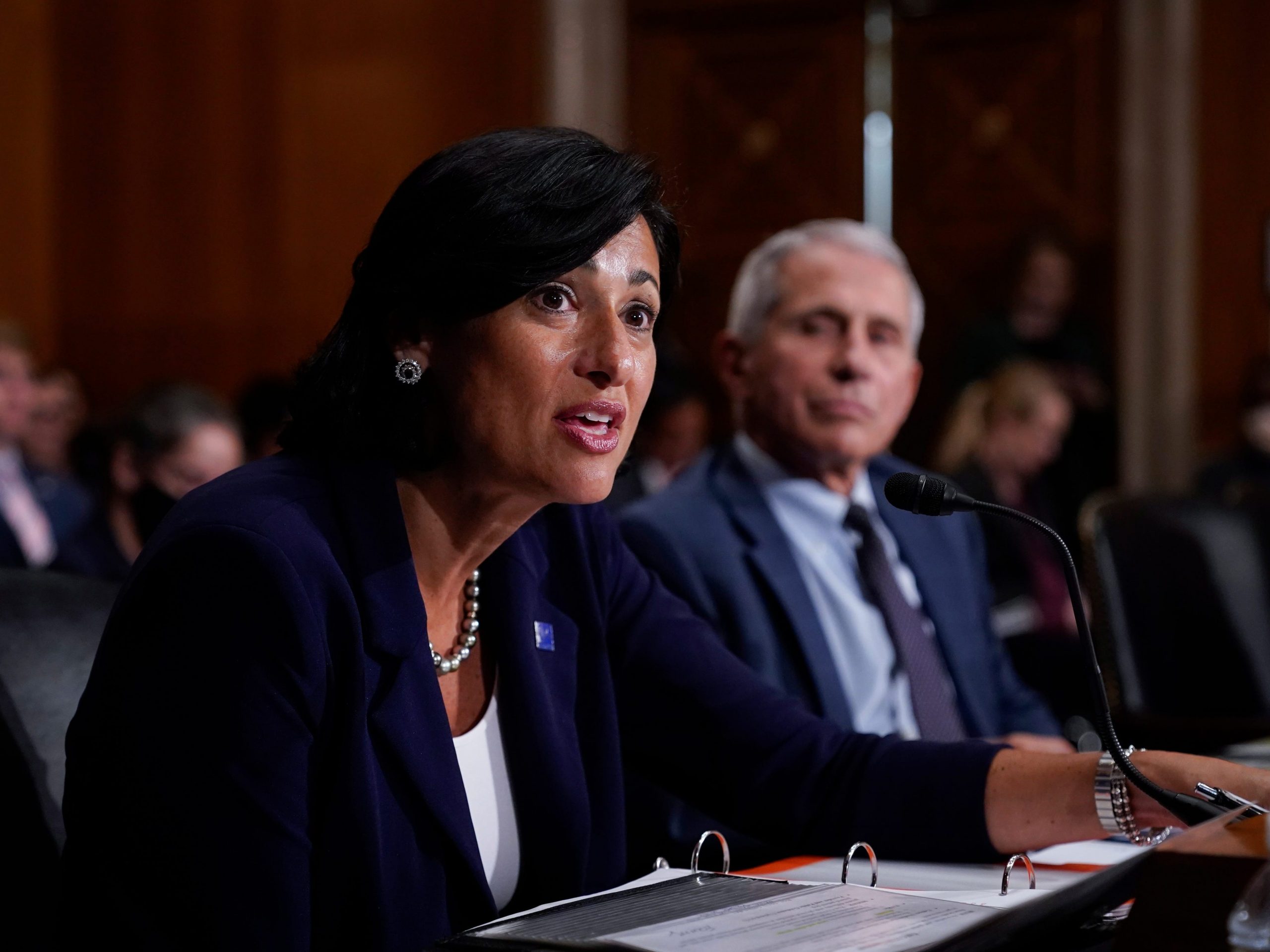
Many US hospitals reported severe staffing shortages in December as COVID-19 cases began to rise. A combination of burnout from unsupportive work environments and trauma from treating COVID-19 patients is fueling the exodus, nurses told Insider.
Just this week, a memo from Rhode Island's Department of Health said nursing home staff could still go to work after testing positive for COVID-19 in the event of a staffing crisis.
"It just stinks of staffing shortage more than scientific proof that we're not spreading COVID after five days," Pokriva said.
Nurses who takes sick days risk missed wages or a formal warming
In the past, if Pokriva were this ill, the hospital would have allowed her to take the week off and count it as a single absence, she said. When she called in sick on Monday, after testing positive for COVID-19, she had already run through the gamut of COVID-19 symptoms: headache, congestion, body aches, cough, and a 102-degree fever.
But a new policy at St. Joseph East states that employees must return to work five days after a positive test or the first sign of symptoms, unless their condition gets worse. Symptoms that qualify for time off must be "true" COVID symptoms, the hospital said: a fever, new cough, or shortness of breath.
"Other mild/moderate symptoms (runny nose, headache, fatigue, etc.) should be viewed separately from the true COVID symptoms when returning the employees/contractors to work," according to the policy, which was reviewed by Insider.
Taking the day off would likely count as a "write-up," or unexcused absence, and potentially result in a verbal warning, Pokriva said. Too many warnings might ultimately lead to termination, an outcome Pokriva never worried about before during her 12 years at St. Joseph East.
Three other nurses across the US, who spoke to Insider on the condition of some degree of anonymity for fear of losing their jobs, told Insider they had been told to come into work while sick with COVID-19 or risk losing pay.
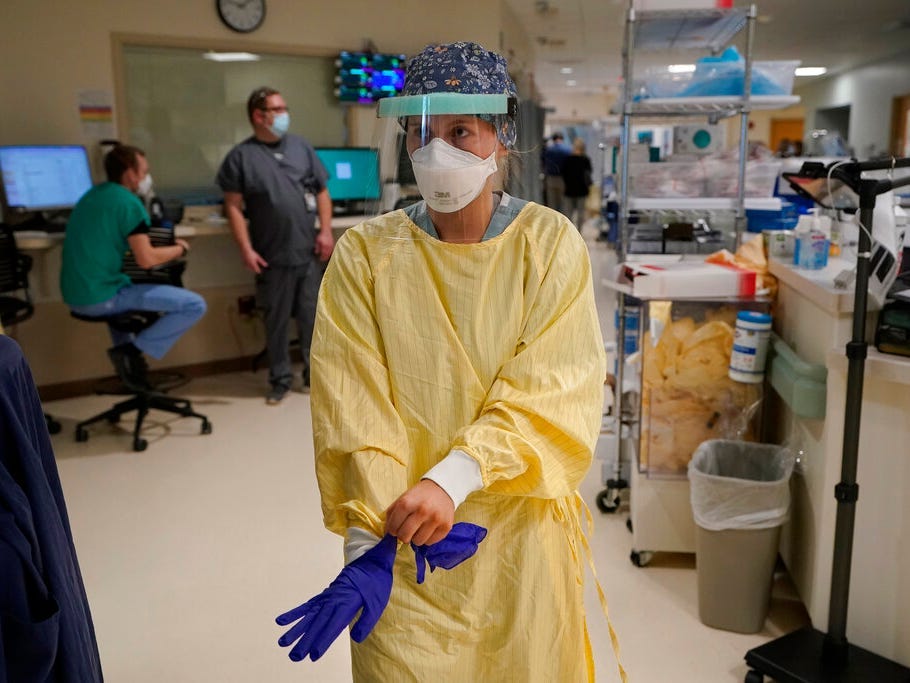
"I'm in the ER and it's very physically exhausting and demanding. I can barely make it through putting towels in the dryer without having to take my inhaler," an emergency nurse in Florida told Insider. She is still struggling with breathing and fatigue more than 10 days since her symptoms started, and seven days since a positive COVID-19 test. She said her manager told her to protect others by wearing an N95 mask on the job. But a thick, tight mask is beyond uncomfortable when she's congested or short of breath, the nurse said.
"I pray that I don't have to work a code or do chest compressions because I don't want to fail my patient in delivering poor CPR because I'm barely able to breathe myself," the Florida nurse added.
It's also unrealistic to assume that masks can be worn every second of a shift.
"Eventually you might want a glass of water or something like that and what are you supposed to do?" Elizabeth, a certified nursing assistant, who said she's bound by similar rules in Wisconsin, told Insider. Elizabeth, who asked to omit her last name, hasn't tested positive for COVID-19 since the policy went into place, but she's unsure what to do if she does.
"I'm not protecting anybody by going to work with COVID," she said.
Nurses worry they're risking their patients' health
COVID-positive nurses said they're fearful of infecting others, given the harrowing losses they've witnessed over the course of the pandemic.
"I can't afford to have a day off and not get paid for it," Abby, another nurse at St. Joseph East who asked to omit her last name, told Insider. "But I don't want to get someone sick. I'd never forgive myself."
"We've had a lot of tragedies happen because of COVID in our ward with moms and babies," she added. "It's not something I want to risk for a patient at any time."
Pokriva said she wonders whether patients would even feel comfortable seeking care from a hospital where the nurses are ill.
"Would you want to come in and have a baby and know that your nurse has COVID?" Pokriva said. "What are our patients thinking about all this?"
Some nurses say they're on the verge of quitting
One emergency room nurse in the mid-Atlantic region worked a 12-hour shift on Christmas. Still, she was denied overtime and holiday pay after calling out sick with COVID-19 around New Years, she said.
The nurse was already "at her wits end" with burnout and exhaustion in October, she said. Like many healthcare workers, she had endured growing amounts of verbal and physical abuse over the past few months. She's only staying in her job for financial reasons, she said, and thinks about quitting "everyday."
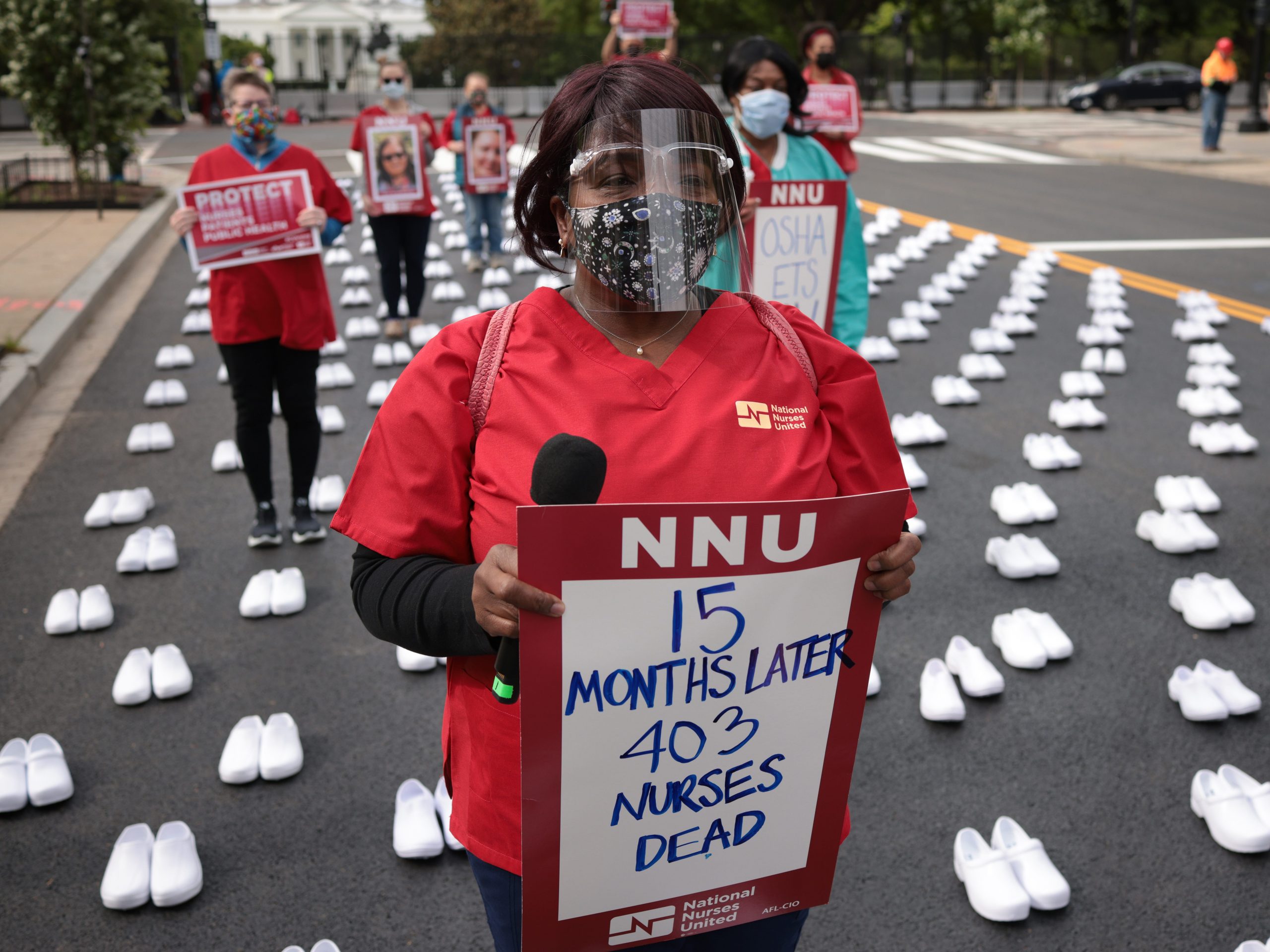
"I chose to be a nurse and I regret it," the nurse said. "Don't go into healthcare. Because we're replaceable, we're expendable."
The one-two punch of low wages and abuse during the pandemic was enough to make Elizabeth drop out of nursing school.
"My heart's not in it anymore," she said, adding, "We went from being heroes to being worse than dirt. I don't understand how that can happen in the course of a year."
Pokriva said the pandemic was a "breaking point" for many nurses who loved their profession, but couldn't stomach the long hours anymore. The new return-to-worry policy exploits the loyalty that nurses have to their colleagues and patients, she added.
"Administration has us in this really unique position because nurses, by nature of who we are, will push ourselves to the limit for the greater good," Pokriva said. "That's why we signed up for this. So I am certain that I'll go back to work on Thursday."
